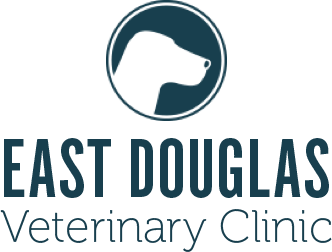Pet Health Library
-
Polyethylene glycol is an off-label laxative used to treat constipation and empty the colon in preparation for procedures such as colonoscopy. The most common side effects are diarrhea, flatulence, and abdominal cramping. Do not use it in pets that are allergic to it or in pets with an intestinal blockage/obstruction.
-
Polymyxin B/miconazole/prednisolone otic (brand name Surolan), is a combination antibacterial (polymyxin B), antifungal (miconazole), and anti-inflammatory steroid (prednisolone) ear drop medication. It is used to treat ear infections in cats and dogs. It is used “off label” or “extra-label” in species other than cats and dogs and to treat conditions other than ear infections. Polymyxin B/miconazole/prednisolone otic comes in an otic suspension form.
-
Polysulfated glycosaminoglycan is an injectable disease-modifying osteoarthritis drug (DMOAD) used to treat non-infectious and traumatic arthritis in dogs. It is also used off-label in cats and small mammals. If administering this medication at home, follow your veterinarian’s instructions and dispose of the needle and syringe appropriately. Side effects are rare when given according to label recommendations and at prescribed intervals. Do not use this medication in pets with a known hypersensitivity to it, in pets with known or suspected bleeding disorders or immune-mediated arthritis, or in pets with severe kidney or liver disorders.
-
Ponazuril is given by mouth and is used on and off label to treat protozoal parasites in a variety of animal species. Side effects are uncommon but may include soft stools. Do not use in pets that are allergic to it. Ponazuril should be used cautiously in pregnant or lactating pets, and dogs with/susceptible to dry eye (keratoconjunctivitis sicca/KCS).
-
When your cat comes home after an operation, special care must be taken to ensure he remains indoors with restricted activity and cannot lick or chew at his incision site. Monitor your cat for abnormal signs and contact your veterinarian if any are observed.
-
This handout explains post-vaccination sarcomas (also called injection-site sarcomas) in cats. They are a rare consequence of vaccine injections (and other drugs or materials) that can cause a very aggressive form of cancer at the site of the injection. The incidence of this condition, as well as precautions you and your veterinarian can take, are highlighted.
-
Potassium salts are given by mouth or an injection and are used on and off label to treat low blood potassium levels. Common side effects include nausea or discomfort. Do not use in pets that have high potassium levels, urination problems, tissue damage, uncontrolled Addison’s disease, gastrointestinal movement problems, or dehydration. If a negative reaction occurs, please call your veterinary office.
-
Povidone iodine topical (brand names Vetadine®, Poviderm®, Povidine®, others) is a topical antiseptic used on the skin prior to surgery and in first aid treatments for cats and dogs. It has been used in aquatic species and reptiles to treat fungal infections and wounds. Povidone iodine topical comes in liquid solution, gel, ointment, scrub, shampoo, and spray forms.
-
Feline poxvirus is a relative of the human smallpox virus seen mainly in Asia, Europe, and England. It causes skin lesions around the head, neck, and forelimbs, such as ulcerations, scabs, or abscesses. Cats often recover on their own with no further symptoms unless they are immunocompromised. There is no specific treatment or vaccine. Antibiotics may be used to control secondary infections. The virus can be transmitted to humans but can be significantly reduced by basic hygiene precautions.
-
Pradofloxacin (brand name Veraflox®) is an antimicrobial medication used to treat bacterial infections. It is used to treat skin, urinary tract, and respiratory tract infections in cats. Pradofloxacin is approved for use in dogs in certain countries. It is used "off label" or "extra label" to treat other types of infections in cats and some types of infections in dogs.

